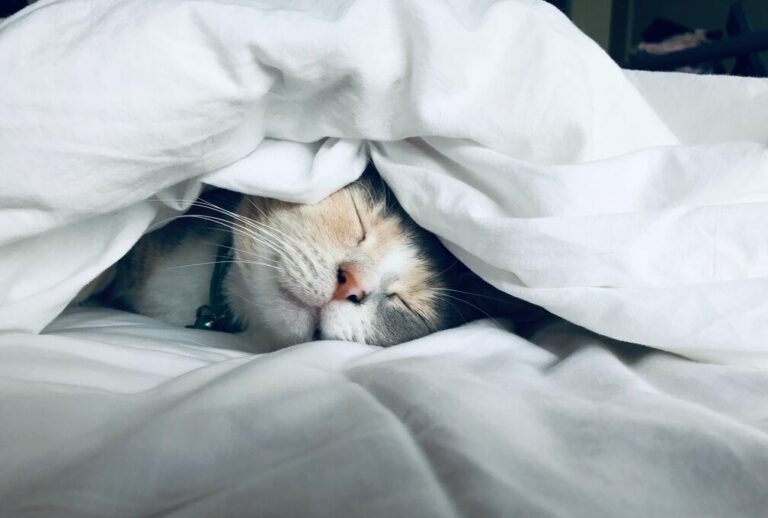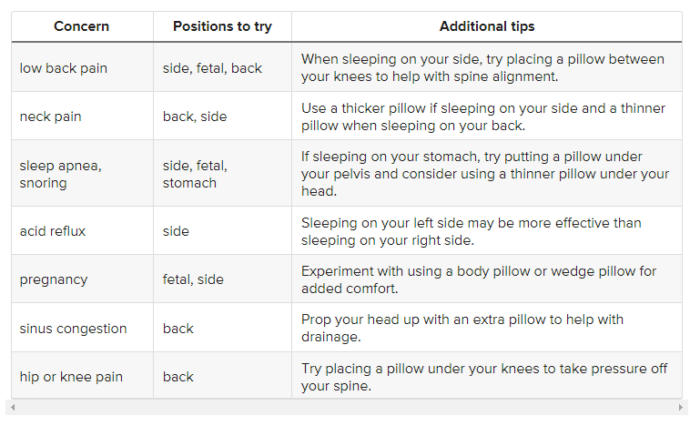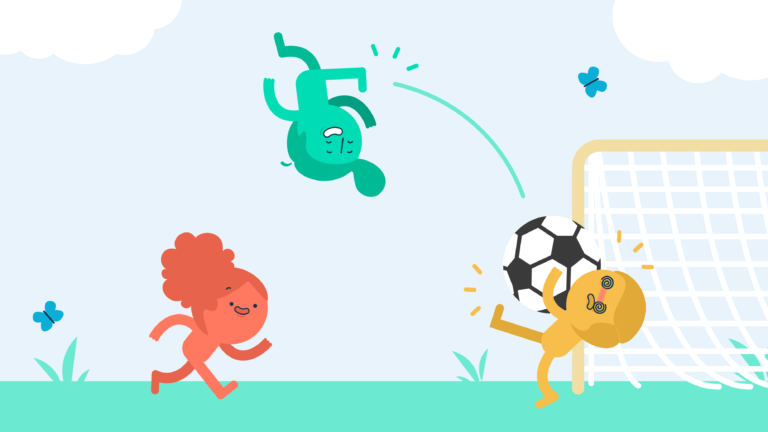We’ve all had those awful nights of tossing and turning, wanting to fall asleep (despite being so tired), but you just CAN’T. And if you’re like me, your mind will take you back to third grade when you walked on stage, and your shoe fell off, and everyone laughed (seriously, kids can be so cruel, right?!). I’m currently taking doctor-prescribed medication to help me sleep because I’m prone to night panic attacks, BUT please never take sleeping tablets or things of the sort UNLESS your doctor has thoroughly assessed your issues and has determined some medication is the best course of action.
Of course, the best way to go is without medication, so let’s get right into how to fall asleep fast (in fact, this blog post might just make you sleepy, too😉).
Don’t Wake Me Up: 10 Tips to Fall Asleep Fast
OK, I’m going to try to make this blog post as short as possible so that you can head off to la-la land (also, the movie La La Land put me to sleep, so that might work for you as well😉).
To fall asleep as quickly as possible, try these ten tips:
- First up, set a healthy evening routine that you follow most days. My fellow writer, Danica, has an awesome post on this, so be sure to check that out. But when it comes to forming your evening routine, ask yourself these questions:
- Does doing this help me relax? Do I feel well while doing it?
- Do I feel better when I structure my evening like this?
- Does doing these things improve my sleep?
- Do I look forward to my evening routine?
- Do I feel ready to sleep and tackle tomorrow?
- As part of your evening routine, try to go to bed at the same time every night. This keeps your circadian rhythm in check and tells your body it’s time to sleep.
- Make sure you eat good food (as in healthy/nutritious) as part of your evening routine. Eating a giant, greasy pizza five minutes before bed will wake up your digestive system and probably leave you feeling uncomfortable and bloated, which won’t help when you’re trying to fall asleep.
- Put that phone away! I know I am super guilty of this too, but if you want to get in an episode or two of Stranger Things, do that at least a few hours before sleep time. Also, while scrolling through social media might be your form of downtime, don’t do it right before you get some shut-eye. The light from your phone plus all that negativity from the media is not doing your it’s-now-bedtime-brain any favours.
- Make sure your room is as dark as possible. Your body is alert when it’s exposed to light, and you don’t need this at bedtime. Darkness is important for the production of melatonin, the sleep hormone. If you’re getting too much light in your room at night (especially during those Northern Hemisphere Summers), see if you can get black-out curtains.
- Regulate the room temperature (I now have Sean Paul’s Temperature playing in my head). If you’ve ever managed to fall asleep when it’s unbearably hot, please tell me how you did it?! Some people tell me it’s unhealthy, but I always sleep with a fan to cool down the room. Having cooler temperatures (obviously not freezing cold) can improve your sleep, so find the temperature that works for you and stick to that.
- It’s all about the materials! You need to have a comfy bed to sleep in, and your bed should be a space you look forward to lying in (positive associations). According to research, medium-to-firm mattresses, orthopaedic pillows, and weighted blankets (I LOVE mine) will help you fall and stay asleep.
- Make sure your bed is used for sleep and not for studying, working, watching Netflix, eating, etc. This is because your brain needs to associate your bed with sleep and relaxation and not things that keep you busy and preoccupied (this is advice from my psychologist, so it’s tried and tested!).
- If you need to do something right before bedtime, rather read a book (preferably an actual book, not an e-reader) to wind down.
- Lastly, if you’re really struggling to fall asleep, don’t fight it and embrace the power of paradox! You can do two things here:
- Get out of bed, sit on your couch, and read until you become sleepy.
- Focus on trying to stay awake! Yep, you read that correctly. The more you try to force yourself to fall asleep, the more panicky you may become. So instead, do the opposite and see what happens. PS Avoid looking at the clock! This will make you panic, too, because you’ll start focusing on how much time you have left to sleep, which just adds to your worries.

Make sure your bed is a comfy space you look forward to sleeping in! Source: Unsplash
Sweet Dreams Are Made of This: Fall Asleep Fast with Music and Meditation
I’ve lumped music and meditation together because many meditation apps have music and/or ambient sounds to help you fall asleep.
Music helps with sleep because it helps regulate cortisol, the stress hormone, which keeps your body alert and awake. Music also stimulates the release of the pleasure hormone, dopamine, and soothes and calms the autonomic nervous system, lowering your blood pressure and slowing breathing. When it comes to choosing music for sleep time, it depends on your personal preferences, but research shows that you should choose music with a tempo of between 60 to 80 beats per minute (I somehow don’t think listening to deathcore is helpful for sleep, but you’re welcome to prove me wrong!). Also, try to avoid songs that will generate strong emotional reactions – remember, you’re trying to relax and fall asleep, not rage against the world and your ex.
If you’re unsure where to begin when choosing music for sleep, meditation apps are a great start. I have a post on the Headspace meditation app with a section dedicated to Headspace’s guides to sleep. They include sleepcasts (with a narrator guiding you towards sleep with ambient sounds in the background), sleep radios (eight hours of sounds like rain, nighttime, and the ocean to keep you sleeping throughout the night), and guidance from professionals on how to sleep better. You’ll also find meditations specifically to help you fall asleep and get quality rest. There are plenty of meditation and sleep apps, including Calm, Breethe, Insight Timer, Meditation Nest, Aura, and Buddhify.
If you’re not so keen on the music part, practising meditation, mindfulness, or even yoga before bedtime will work wonders for falling asleep and the quality of sleep you get. I’ve mentioned this before, but I can’t emphasise it enough: Breathing is so powerful. Doing a small meditative exercise focusing on your breathing and nothing else will calm your body and mind down and boost that melatonin, preparing you for the sweetest dreams and deepest sleep.
Just Breathe: Breathing Exercise to Fall Asleep Fast
If you’ve got a meditation app (or just a quick YouTube search), you’ll have access to exercises that focus on your breathing in specific ways. Often, you’ll have a narrator guiding you. I even have a function on my FitBit called Relax that makes me focus on deep breathing for two minutes. There are plenty of different breathing exercises out there, but I’m just going to highlight two here.
The 4-7-8 Breathing Technique
Developed by Dr Andrew Weil, this breath control technique takes its cues from yoga. You can use it for bedtime or anytime you feel anxious or stressed. Here’s how you do it:
- Place the tip of your tongue at the back of your upper front teeth.
- Exhale through your mouth, making a ‘whoosh’ sound.
- Now close your mouth and inhale through your nose while counting to four.
- Hold your breath and count to seven.
- Exhale through your mouth again (with the ‘whoosh’ sound), this time counting to eight.
- Repeat three or four more times.
Here’s a video to get you started:
The Papworth Method
This one is nice and simple and gets you to focus on your diaphragm.
- Sit up straight in bed.
- Take deep, purposeful breaths: count to four with each inhale (through your mouth or nose) and count to four with each exhale (through your nose).
- Make sure to focus on your abdomen and actively listen to your breath.
Body Scanning
I do this from time to time (a few psychologists of mine recommended it). This is all about acceptance and kindness towards your body, and paying intention to what you feel and notice.
- Lie down on your bed and get comfortable.
- Start by taking a few deep breaths, focusing more on breathing from your belly.
- Now focus intently on your feet, noticing and observing any sensations, pain, or tension. Acknowledge and accept what you observe and breathe through it.
- Do this for the rest of your body: your legs, stomach, hands, arms, neck, and head. Whenever you find tension or pain, keep breathing through it. You can start from your head, too, moving downwards.
If you’re interested in other breathing exercises, you can look up the three-part breathing exercise, diaphragmatic breathing, and alternate nasal breathing.
I Should Probably Go to Bed: Five Home Remedies to Fall Asleep Fast
You might’ve heard of some old wives’ tales about drinks to help you sleep, like a warm cup of milk or chamomile tea. Maybe they help – it’s whatever works for you! Here are some top home remedies to help you sleep, courtesy of the famous Johns Hopkins Medicine and the team at Medical News Today.
- HA! So the very first natural sleep aid mentioned by the professionals at John Hopkins is warm milk, chamomile tea, or tart berry juice. (I remember the chamomile tea because Peter Rabbit’s mom gives him some in bed in one of the books I read.) And my mom used to give me warm milk at bedtime. So heck, if a doctor at John Hopkins recommends you give these a try, why not?! There’s no caffeine in them, and there’ll be no side effects.
- Try melatonin supplements. OK, this isn’t necessarily a home remedy, but you can grab melatonin (and other herbal sleep supplements) over the counter at your local pharmacy. Baldrian and lavender (in the form of pills, lavender oil, or lavender spray) may also help.
- Magnesium, which you can also get over the counter at your local pharmacy, helps your muscles relax and decreases stress. If you’re not keen on taking a pill, go for foods high in this mighty mineral!
- Why not try some aromatherapy with an essential oil diffuser that will fill your room with dreamy scents like lavender, peppermint, lemon, or orange?
- Exercise! You knew it was coming, didn’t you?! So research shows that doing 150 minutes of exercise per week is great if you’re a struggling sleeper. Exercise boosts serotonin, which, in turn, helps with your sleep. And don’t worry if you’re not a fitness fanatic; your 150 minutes can just be walking outdoors, swimming, or doing yoga (no need to go HAM with the weights or run a marathon!). If you’re looking for a fantastic app with free exercises ranging from five to 45 minutes for all levels, check out FitOn!
Tossin’ and Turnin’: The Best Sleeping Position to Fall Asleep Fast
Well, this does come down to personal preference, but some research points to sleeping on your side as the best for getting quality sleep (fun fact: over 60% of people sleep on their side). Sleeping on your back is also seen as slightly more beneficial than sleeping on your stomach, but take caution: if you’re prone to sleep apnoea, sleeping on your back could worsen it.
The best sleeping position is one where your spine is healthily aligned, and that’s why sleeping on your side or back is better. Side-sleeping is great for promoting healthy spine alignment and good for people with back pain. If you’re a side sleeper, try sleeping more on your left side because this decreases pressure on your organs. If you’re a back sleeper, it’s easier to keep your spine in alignment and distribute your body weight evenly.
I personally sleep in the foetal position (on my side with my legs curled towards me). I don’t know how legit this is, but sleeping in the foetal position can be comforting in times of high stress because it takes you back to when you were protected in the womb! (That does make sense, right?!)
Basically, the way you sleep is up to you. Just make sure you are comfortable and that your spine is aligned. Here’s a great table from Healthline to help you switch up sleeping positions if you have any of the following concerns:

Sleeping positions to try if you have any of the above concerns. Source: Healthline
How Do You Sleep? The Best Way to Fall Asleep Fast
So the best way to fall asleep fast is … to follow our advice above😉. You need to find what works for you, so long as it’s HEALTHY. Form your evening routine, ditch your phone, drink a cup of warm milk, read a good book (an actual paper book), listen to some music, and do some deep breathing exercises.
I know how tempting it is to lie in bed snacking and bingeing Netflix, but try to avoid this as much as possible, especially if you’re struggling to fall and stay asleep.
We hope this post brought you some valuable tips so that next time Sam Smith asks you, ‘How Do You Sleep?’ you can answer with ‘like a baby’.












